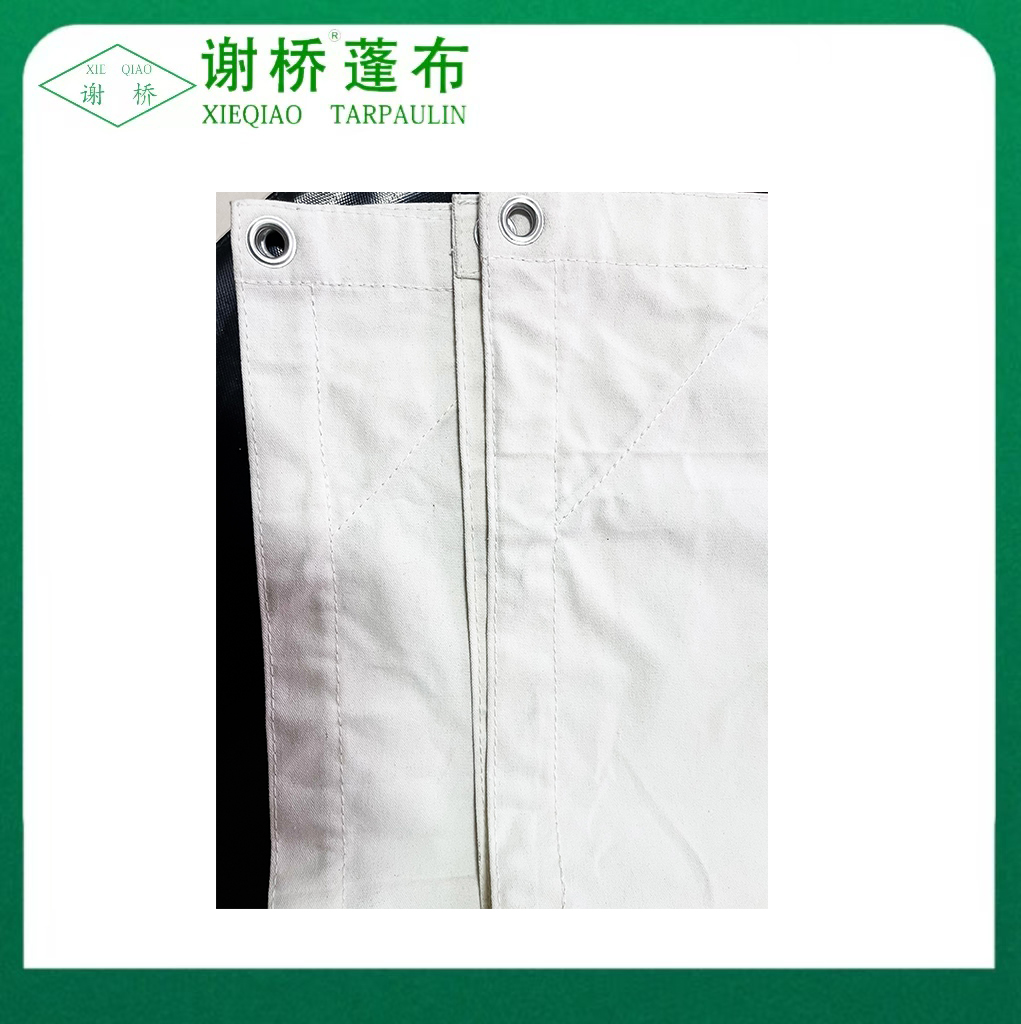Specializing in all kinds of custom tarpaulins Custom Tarpaulin Product Manufacturers
 2025.07.09
2025.07.09
 Industry News
Industry News
With the increasing popularity of outdoor lifestyles and multifunctional materials in the global market, waterproof canvas has become one of the indispensable materials in construction, outdoor equipment, home decoration and industrial fields. It has excellent properties such as waterproof, mildew-proof, wear-resistant and tear-resistant, and is widely used in various scenes that require water resistance or protection.
1. What is waterproof canvas?
Waterproof canvas is a heavy fabric that has been specially treated. Common base materials include cotton, polyester, nylon, etc. It is treated with waterproof coatings such as PVC, PU, PE, wax or silicone to achieve the ability to completely block water penetration. Depending on the purpose and material, it can be lightweight or super durable, and at the same time have a certain degree of plasticity and flexibility.
2. Core performance of waterproof canvas
Before understanding the uses, let's take a look at why it is so versatile:
Completely waterproof: rain, snow, and moisture cannot penetrate;
UV and high temperature resistance: suitable for long-term exposure outdoors;
High wear resistance and tear resistance: suitable for high-intensity use environments;
Mold and mildew resistance: suitable for humid climates and storage places;
Can be sewn, folded, easy to transport and process.

3. Best application areas of waterproof canvas
1. Outdoor tents and camping equipment
Waterproof canvas is widely used in camping tents, awnings, sleeping bag shells, mats and other camping equipment. Its strong waterproof ability can keep dry in heavy rain, and resist wind, snow, sand and dust, providing a reliable shelter space for outdoor activities.
Advantages:
High tensile strength to prevent tents from breaking;
Not easy to mildew, suitable for humid forests or mountainous areas.
2. Car and cargo covers (Tarpaulin)
During transportation, in order to prevent the goods from getting wet due to rain and snow, many trucks and vans use waterproof canvas as tarpaulin. Its size can be customized, it is strong and durable, and it is an ideal material for protecting industrial goods, building materials, grain and other items.
Application examples:
Truck roof cloth, truck box waterproof cover;
Building material stacking cover, sunscreen and rainproof curtain cloth;
Container lining cloth, outdoor storage tarpaulin.
3. Parasol and awning structure
In cafes, outdoor activities, and courtyards, parasols and awnings mostly use waterproof canvas as the fabric material. It not only blocks solar radiation, but also provides effective protection when it rains suddenly.
Features:
Provides UV protection;
Rich colors, can be printed with patterns, and takes into account decorativeness.
4. Pet houses, tents and animal cages
Farms and pet product manufacturers also commonly use waterproof canvas to make dog houses, pet tents, poultry sunshades, feed covers, etc., because it can effectively block water and prevent animals from getting wet by rain or feed from getting damp.
5. Backpacks, tool bags, and suitcase shells
High-end outdoor backpacks, tool bags, camera bags, and tactical equipment bags often use waterproof canvas materials. These bags must not only withstand the baptism of wind and rain, but also need to resist falling and tearing in the wild, mountaineering, photography, construction and other environments.
Advantages:
More durable, stronger than ordinary nylon or polyester;
The appearance is retro and textured, popular with outdoor brands and designers.
6. DIY home and interior decorations
In the field of home DIY, waterproof canvas is used to make curtains, tablecloths, cushion covers, storage bags, cat beds, wall coverings and other products. Its anti-fouling and easy-to-clean properties make home spaces easier to care for.
Special applications:
Making kitchen cloths, laundry bags and other wet area supplies;
Used as balcony sunshades or furniture covers.
7. Waterproof work clothes and outdoor work clothes
In high-risk work scenes such as construction, railways, mining, and shipping, waterproof canvas is used to make workers' raincoats, protective covers, waterproof aprons, and cold-proof clothing linings to help personnel resist bad weather and working environments.
8. Military and field combat supplies
In the field of military supplies, waterproof canvas is used to make field tents, camouflage nets, military bags, waterproof mats, protective covers, etc. It has the characteristics of waterproof, windproof, camouflaged, and durable, and is an important part of field support equipment.
4. Precautions for using waterproof canvas
Although waterproof canvas has many advantages, the following points should also be noted during use:
Avoid high-temperature drying: some waterproof coatings are not resistant to high temperatures and should be dried naturally after washing;
Prevent long-term folding and indentation: roll up when stored to avoid material fatigue at the fold line;
Regularly check the waterproof performance: especially canvas used for a long time outdoors, it should be tested every year for aging or delamination;
Special needles and threads are required for sewing: due to the thick fabric, industrial machine needles and polyester threads should be used.
5. Conclusion: The future of multifunctional application materials
Waterproof canvas has become an indispensable practical material in many industries and daily life with its excellent protection ability and wide applicability. From outdoor equipment that resists bad weather to home fabrics with modern design, it is not only a functional fabric, but also an innovative material that connects practicality and aesthetics.